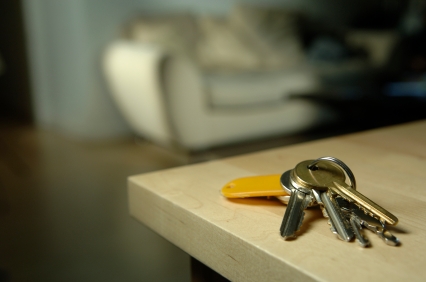Home Sellers don’t have a 365 day return policy like Zappos.com. You can’t simply try the house on for a few months and see how you like it. When you buy a home, it is a serious affair and there are no good options for turning back. In other words, buying a home is a big, big decision and shouldn’t be taken lightly. Below you will find some common missteps and mistakes that some home buyers make. Don’t make’em.
-
Moving too fast
Searching for homes online is fun. Visiting Trulia.com and Zillow.com and partaking in the exquisite hard wood floors, infinity pools, and other various house porn in a good time. However, home buyers need to do their due diligence. Take the time to tour some homes with your Realtor. Make sure you have a good gauge of what your needs and preferences actually are. Searching for a home can be an emotional experience, so don’t make an impulse purchase that you can easily correct.
-
Not researching
From HGTV, Zillow.com, Trulia.com, Bankrate.com, and local blogs (such as our’s), there is a wealth of information on the Web to help you through your home search. Although, the sheer breadth of information can be somewhat overwhelming, home buyers should try to gather as much information as the can about Mortgage rates, mortgage programs, real estate market conditions (local and national), home amenities (such as counter tops, HVAC systems, flooring types), property tax, etc., etc. The goal of this information is not necessarily to become an expert in all of these areas. However, you do want to develop a good source of knowledge about homes and the home buying process in general. This new found knowledge should provide you with a good base to help you assemble your team of mortgage professionals, Realtors, inspectors, etc.
-
Skipping the home inspection
No matter how hard you look or how handy you might be, there are some things that you are simply not going to be able to see with the naked eye. That is where a quality home inspector comes in. A quality home inspector gets on their hands and knees, climbs in the attic, and employs their little testing gadgets to help ensure that you are buying a quality home with fully functioning systems. Don’t skip this step. You need to know what you are buying.
-
Not buying for your needs
There are a lot of great homes out there, but not all great homes are great or right for you. For example, 5000 square feet is great, but if it is just you and your dog, 5000 square feet is a lot of empty space and a lot to keep up with. Pools are great too, but they require a lot of upkeep and attention. Make sure you want the responsibility and are prepared for the expense. In other words, be practical and make sure you really want what you want.
-
Location, location, location
Yes, it is a cliche, but real estate really and truly is all about location. That’s why a 1300 square foot home in West University sells for 3 times the price of a 3000 square foot home in Pasadena (no offense Pasadena). But when considering location, home buyers should not only consider neighborhood. They should also consider the location within the neighborhood. Buying on a major thoroughfare in the neighborhood or along the major power line easement in a neighborhood can have a lot of disadvantages. Not only could their be quality of life concerns, but there could also be concerns with respect to any eventual resale. Even if the price is discounted appropriately, homes with location concerns typically take much longer to sell than homes with great locations.
-
Buying the most expensive home in the neighborhood
Not surprisingly, the most expensive home in a given neighborhood has typically the nicest or has the most amenities. Buying the most expensive home in a neighborhood can have some disadvantages. When you buy the most expensive home in a neighborhood, you may be limiting the number of potential home buyers when you go to resale. Most home buyers with a particular price range/budget gravitate to neighborhoods that have the most options available to them. If you have one of the most expensive homes in a neighborhood, make sure there are a lot of other homes available in your neighborhood at or near that price point. Otherwise, it might take you a lot longer to sell it when it is your turn.
-
Not getting pre-qualified/approved
Getting pre-qualified or approved with a mortgage lender can help you formulate a realistic budget before you start your home search. A simply mortgage calculator does not get it done. Your monthly outlays on a home includes more than just utilities and your mortgage payment. It also can include property taxes (for example, most, but not all, inner loop Houston homes have a tax rate of 2.56% on the appraised value), homeowners insurance, and homeowners association dues. A quality, local loan officer can assist you with formulating estimates on these monthly costs and help you estimate the “at close” costs that you can expect at closing. By going through this process at the beginning of your search, it could help save valuable time so you make sure you are looking at homes that you can afford.
-
Signing a Contract with no Contingencies
Most home sellers in Houston expect an earnest money deposit of 1% of the sales price. For a $300,000 home, that’s $3K, which isn’t chump change. In order to protect that deposit, it is important to make sure that your purchase contract contains reasonable and responsible contingencies to ensure return of your earnest money if the transaction does not work out. In Texas, there are two main contingencies that are available to the home buyer, the Option Period and the Financing Contingency.
The Option Period allows you a reasonable amount of time to inspect the home, measure for drapes, and generally make sure that the home is the right fit for you. If you decide at any time and for any reason you would like to terminate the contract during the Option Period, you will receive your Earnest money check back in full. There is a small fee for the Option period, but it usually only amounts to a couple hundred dollars and it is typically refundable at closing.
With the Financing Contingency, the contract will allow the home buyer to exit the contract in the event that the mortgage underwriter does not approve your financing due to property condition, the appraised value, or insurability. In other words, if the mortgage company will not approve your loan because of the home, then you can get your earnest money back.
There are a couple other contingencies related to the survey and title insurance. Consult your Realtor or Attorney to discover additional ways to protect your rights and secure your earnest money deposit.
-
Get everything in writing
The home seller might seem like a heck of nice guy when he’s trying to sell his home, but that doesn’t mean he doesn’t have his attorney on speed dial. You might think your getting that fancy new washer/dryer set he promised you, but unless you get it in writing there is no way to prove.
-
Don’t accept full price
You might have to settle on it, but you should never accept full price for any home. Whether it is new construction or for sale by owner, everything is negotiable and it never hurts to ask. If you aren’t the kind of person that likes to rock the boat, make sure that your agent is representing your interest and sick’em on the seller to look out for your interests.




